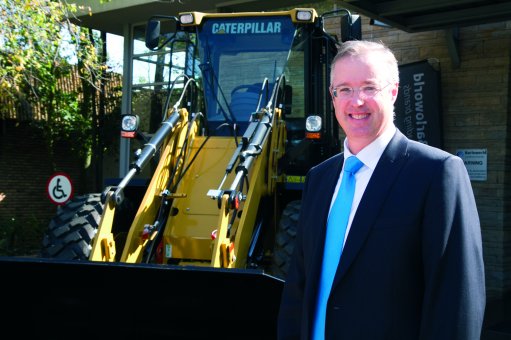
Clive Thomson
Photo by: Duane Daws
With new equipment orders stalling and the Russian market still in a slump, Barloworld found its cheer for the six months ended March 31 from a turnaround in its Iberian business and healthy equipment parts and service sales.
The equipment, automotive and logistics group on Monday reported that revenue was up 3%, to R30.7-billion, for the six months compared with the same period last year, while operating profit increased 6%, to R1.74-billion.
Group operating margin increased from 5.5% to 5.7%.
While most divisions within Barloworld reported an increase in operating profit in rand terms, Equipment Russia saw profit drop 35%, to R101-million.
Barloworld CE Clive Thomson said, in Johannesburg, that revenue in Russia was under pressure owing to commodity price weakness and the impact of sanctions.
The Russian mining industry was still delaying large greenfield and fleet replacement projects.
Around 60% of Barloworld’s revenue in Russia now came from product support, said Thomson, up from 46% last year.
New equipment sales made up 34% of Barloworld’s revenue in Russia in the six months under review, compared with 48% in the same period in the previous financial year.
“We are very dependent on the mining sector,” said Thomson. “And our dollar-based machinery are less competitive than the Russian equipment, priced in ruble.”
Around 64% of Barloworld equipment sales went into the Russian mining industry in the six months under review.
The order book for Equipment Russia was at $16-million in March, compared with $14-million in September.
Thomson said Barloworld had cut its revenue outlook for the business to between $250-million to $300-million for the full financial year, compared with the $382-million realised in the previous financial year.
Equipment Southern Africa increased operating profit by 8% to R826-million, despite continued weakness in the local mining sector, said Thomson.
This profitability was largely driven by part sales growth and improvement in service productivity.
Product support now made up 51% of revenue for this business, up from 46% last year.
Sales in the construction sector made up 43% of the revenue stream in Southern Africa, up from 34% last year. Mining shrunk to 27%, down from 30%.
Thomson said he expected the mining sector in the region to remain under pressure “for at least this year, and possibly well into 2016”.
The construction sector performed better as provincial and municipal projects to some degree made up for the lack of large-scale infrastructure projects by national government.
The order book for Equipment Southern Africa stood at R2.3-billion in March, compared with R1.9-billion in September.
Equipment Iberia “finally” made its first profit since the onset of the global economic crisis, noted Thomson.
The main reason for the turnaround had been a reduction in operating costs.
Thomson was hopeful of an uptick in this market, as the 2014 Spanish new machine market showed growth for the first time since 2007.
Iberia followed the trend of other markets, with product support as a portion of revenue growing from 41% last year to the current 44%.
Just less than 50% of Barloworld revenue in Iberia came from the power sector.
The order book was at €36-million, slightly up on €33-million in September.
Barloworld Handling reported operating profit of R3-million, down from R31-million this time last year, owing to the Agriculture Russia business, which struggled to remain cost competitive with home grown Russian products.
Barlworld’s Automotive business increased operating profit by 8.5% to R780-million.
Thomson said the group was “exploring opportunities for growth within the broader automotive [retail] value-chain”.
The Logistics business held profit steady at R56-million for the period.
New contracts include Telkom, Kelloggs, Makro and Eskom.
Thomson expected trading conditions in the second half of the financial year to remain challenging, with Barloworld focused on operational efficiencies and tight cost control.
“Overall, we expect our business to deliver a resilient performance.”